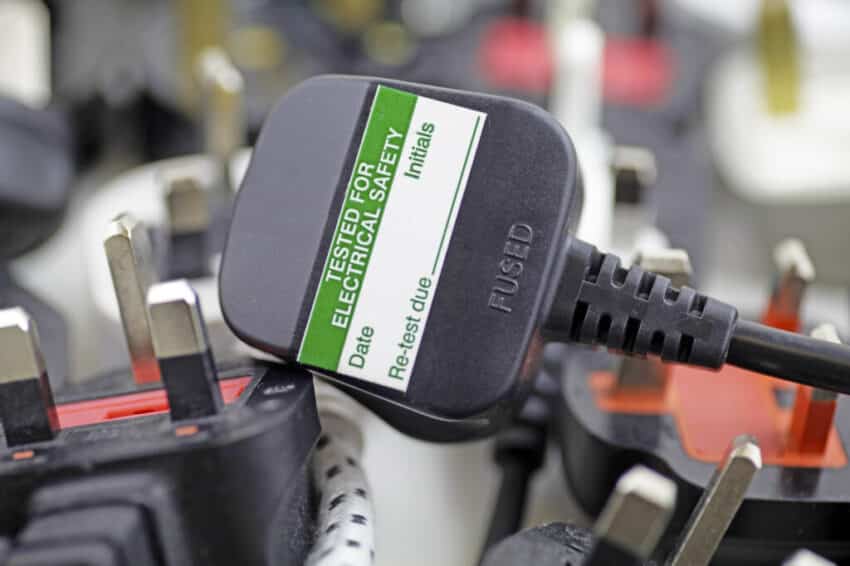Pat testing, also known as portable appliance testing or a PAT inspection is the process by which electrical appliances are routinely checked for any obvious faults or potential hazardous defects, and to ensure that they are safe to use.
What does it involve?
Portable Appliance Testing involves a visual inspection of the equipment and any flexible cables for good condition, and also where required, verification of earthing continuity as well as a test of the soundness of insulation between the current carrying parts, and any exposed metal that could be touched.
Some appliances only need a reduced test, which is known as a pat insulation test. Following the PAT test, each appliance should be marked as ‘passed’ or ‘failed’. Ideally, a record of the results should be kept for your own records.
What appliances need to be tested?
Whilst the current legislation provides no definition of what a ‘Portable Appliance’ is, the standard interpretation is “any appliance that has a plug attached to it and plugs into a wall outlet”.
As a result, the word ‘portable’ is a bit misleading but there are seven categories of appliance which should be considered for testing or, at least, visual inspections:
- Fixed appliances
- Stationary appliances
- IT appliances
- Moveable appliances
- Portable appliances
- Cables and chargers
- Hand Held appliances
Is testing a legal obligation?
Pat testing is not, in itself, a current legal obligation for residential properties, although landlords do have a legal obligation to ensure that electrical appliances provided to tenants in their properties are safe, or at least carry the CE mark. Current UK legislation states that businesses must maintain electrical equipment in a safe condition. They also have a legal responsibility to ensure the safety of employees and the public.
Why should I get Portable Appliance Testing?
Throughout England and Wales, approximately 15% of all domestic fires are caused by electrical faults, with electrical appliance breakdowns and broken cables among the leading causes. This translates to nearly 8,000 electrical fires in the UK alone, with almost 4,000 injuries and more than 30 deaths. Regular appliance testing can provide the a number of benefits;
- Reduce the likelihood of an appliance catching fire
- Ensure electrical appliances provided to tenants in rental property are safe
- PAT testing reduces the chances of a fire in the workplace
- Reduce the risk appliances pose to your tenants, guests or customers
- Regular testing will increase the chances of making a successful insurance claim in the event of an electrical fire
Who can carry out Portable Appliance Testing?
The inspection should be undertaken by a competent person – someone who has had some PAT training, either by an official qualification or by attending a health and safety course offered by electrical health and safety companies.
How much does a PAT testing cost?
The cost of testing is determined by the number of appliances which need to be tested.
MyConstructor has a comprehensive, nationwide network of fully qualified Electrical Engineers who are able to undertake your PAT tests. MyConstructor offers a competitive marketplace for property services which encourages the engineers to offer you their best and most competitive rates! Why not save time, money and make sure you are fully compliant by booking your PAT Test along with your Electrical Installation Condition Report?
Take a look at the pat testing price list below and if you have multiple properties to book in, either for appliance testing alone or combined with your EICR, then don’t forget to speak to us about discounted rates for block bookings!
Portable Appliance Testing Price Guide;
1-10 appliances – £40
11-20 appliances – £50
21-30 appliances – £60
30 + appliances – £70


